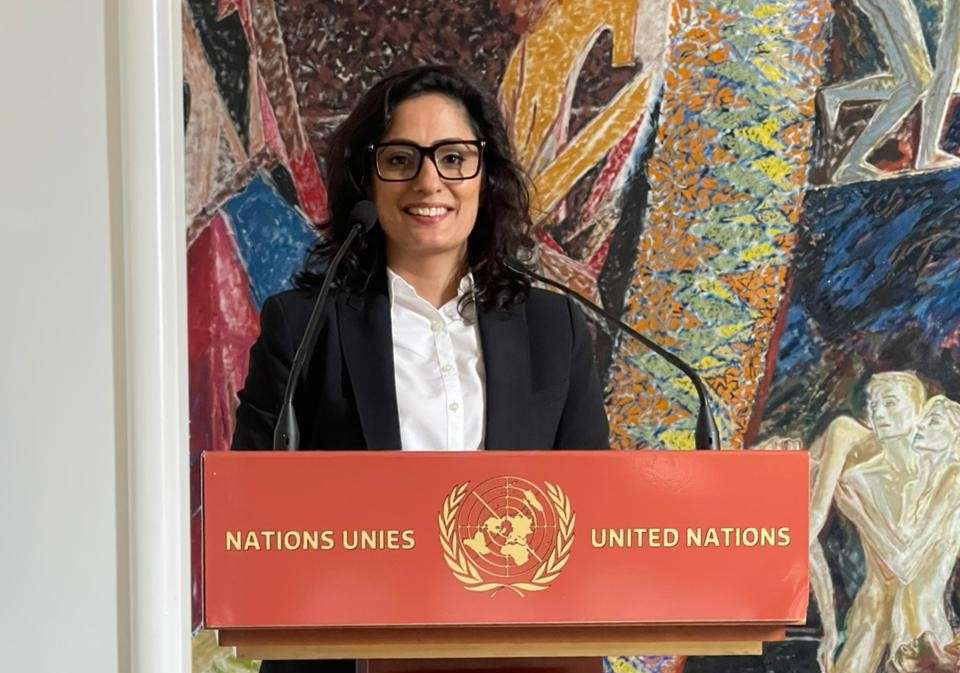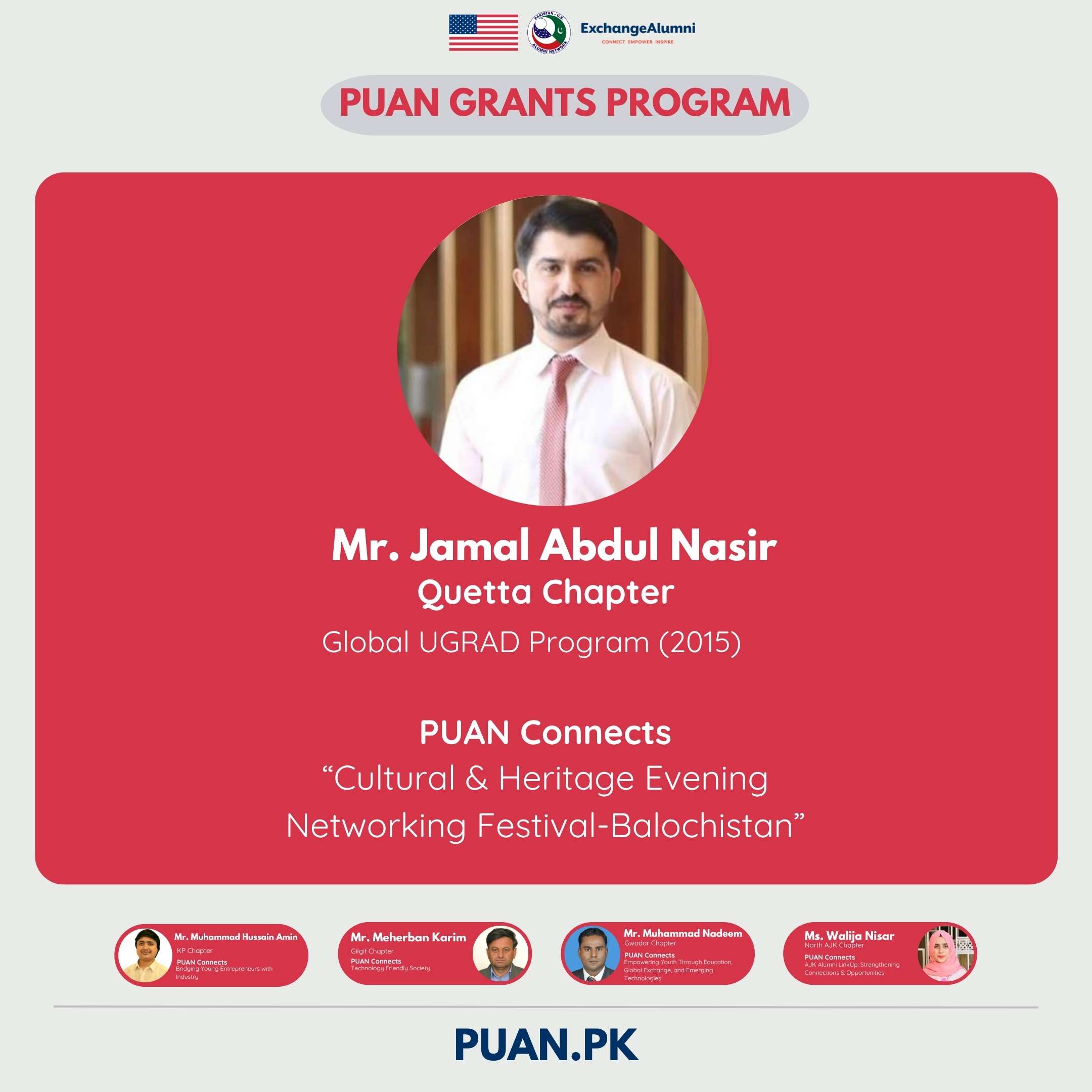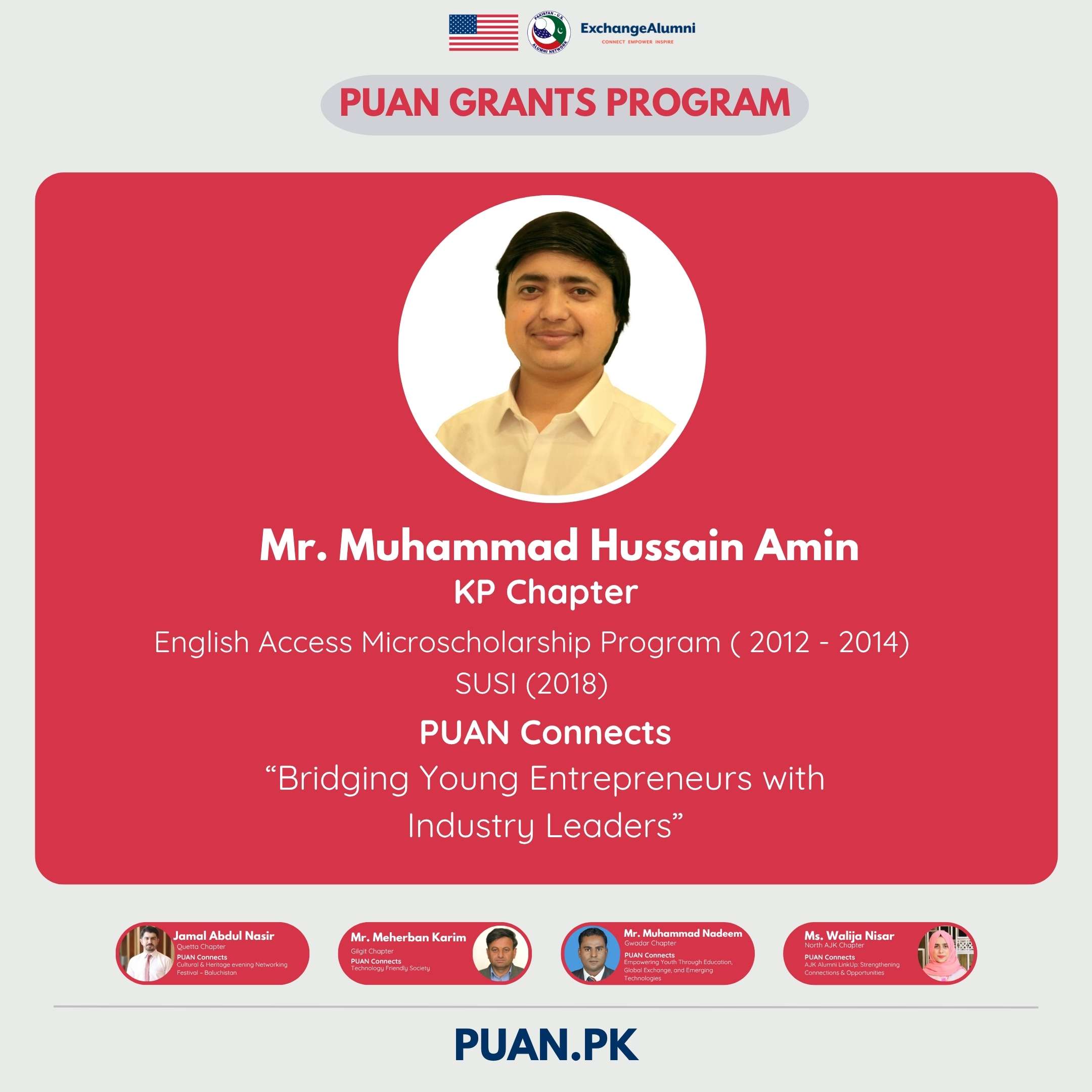By Hira Nafees Shah
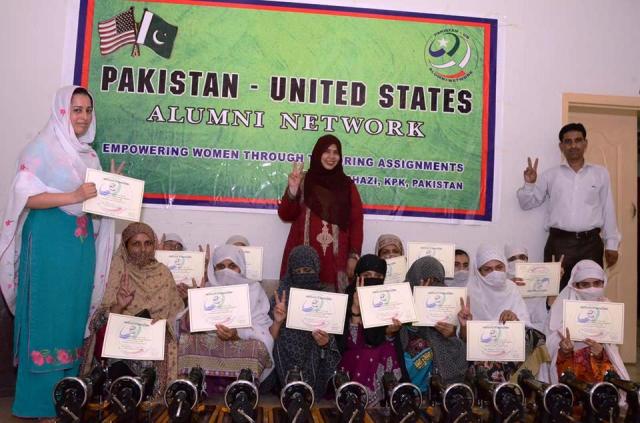
Shakeela Begum’s daughter had not even been born when her husband left the world. What followed were 10 years of incredible hardship, as she was forced to work as a maid in people’s homes to provide for herself and her young children.
Help finally arrived for her and other poverty-stricken women in Ghazi, Khyber Pakhtunhkwa in the form of a couple of kind-hearted members of the local community, who offered a tailoring course at a women’s center in the area. Begum and others hastened to get registered.
“I thought the most beneficial aspect of learning how to sew and stitch was that I would be able to sit at home and earn a living,” she said.
The project was the brainchild of Fulbright Alumna Aisha Azhar, who devoted herself to gender and women’s issues after completing her exchange experience in order to give back to Pakistan.
“I wanted to focus on needy women who were looking for prospects as Ghazi is a very backward area,” said Azhar. “So I think my project is very important from a sustainability point of view, as the participants were able to acquire lifelong skills.”
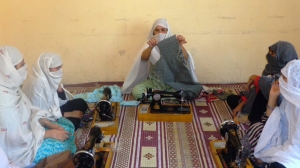
The project involved a two months training course in which about 12 underprivileged women learned how to sew. They were first taught how to stitch children’s clothes and then progressed to making items for adults. The training culminated in a one week workshop in June, in which all the attendees were given brand new sewing machines.
Sumbul Nagin, 17, was one of the participants who took part in the project, after her father passed away. Nagin commented on the difference that the workshop had created in her family’s life.
“The training was very beneficial as I am now able to support my mother,” she said. “Before I used to just stay at home and my younger brother had to work in a shop.”
Nagin happily reported that so far she had earned a thousand rupees and hoped to continue earning in the future as well. She also thanked Azhar and other organizers for providing the participants with a much needed vocation.
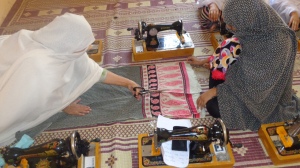
Zebi Naveen, one of the coordinators of the project says that two centers were set up in two different areas of the sub-district to accommodate six women each. The classes took place from nine in the morning till 12:30 with every Sunday off. All the trainers taught the tailors on a voluntary basis. The reactions that they received from their students were often extraordinary.
“The participants were extremely happy and said they could now afford to buy something for their children for Eid-ul-Fitr,” said Naveen.
She said one of the attendees used to live in a tent with her family, that now she is able to earn a livelihood by taking part in the workshop.
“Before I used to beg people for work. But now I have so many clothes to stitch that the customers are now begging me,” Naveen said narrating the participant’s reaction.
Saima Noreen, the eldest of five siblings, is another beneficiary of the project. She says she is grateful to have received the sewing machine.
“My family is happy that I am making money while sitting at home, because earlier people would talk when I would work in other people’s homes,” she said.
Azhar is ecstatic about the response that she has received from her participants—some of whom showed off the samples that they had stitched at the closing ceremony. She was so motivated that she decided to help out an additional group of disadvantaged females, so 32 more under-privileged women ended up receiving the same training and new sewing machines.
The alumna is also happily looking forward to the future.
“My tailoring workshop has raised my confidence level to undertake more projects in the future and I feel satisfied and motivated by the response that I have received,” she said.
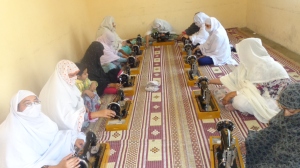
As for Shakeela Begum, she says that the training has been such a turning point in her life that she now encourages other needy females to come forward and learn how to sew. In her motivational discussions, she is also quick to point out the monetary benefits that she has received from the classes.
“I used to make 300 Rs. in a month by cleaning people’s homes, and now I charge 300 Rs. for every dress that I make and sometimes I stitch 2 to 3 clothes in a day,” she reported happily.



